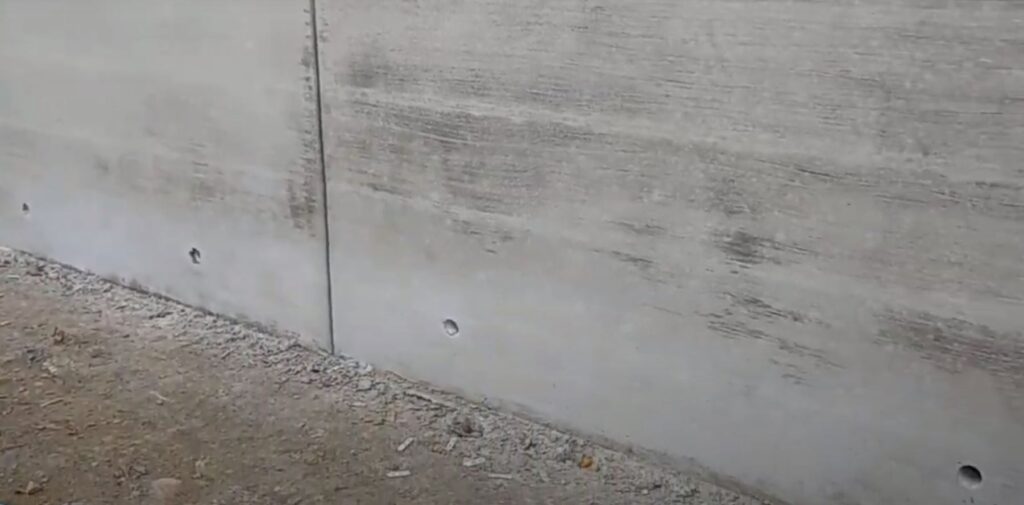Longevity of Retaining Walls: Factors and Maintenance
In the Waikato construction industry, understanding the durability of retaining walls is crucial for Hamiltonians planning long-lasting landscaping or structural projects. The lifespan of a retaining wall largely depends on the materials used, the quality of construction, and ongoing maintenance.
Lifespan Based on Materials
Concrete Retaining Walls:
- Durability: Renowned for their sturdiness and resilience, concrete retaining walls typically last between 50 to 100 years.
- Usage in Hamilton: Ideal for projects in Hamilton suburbs like Forest Lake, where longevity and minimal maintenance are key.
Brick Masonry Walls:
- Longevity: Brick masonry walls also boast a lifespan of 50 to 100 years, thanks to their robust composition.
- Application: Suitable for aesthetic and functional purposes in areas like Flagstaff, blending durability with visual appeal.
Wood Retaining Walls:
- Lifespan: A well-built wood retaining wall can last from 10 to 25 years, depending on care and environmental factors.
- Considerations: Regular maintenance is essential, particularly in damp or wooded areas of Hamilton, to prevent rot and water damage.
| Material Type | Durability/Lifespan | Key Considerations |
| Concrete | 50 to 100 years | Ideal for long-term durability with minimal upkeep |
| Brick Masonry | 50 to 100 years | Offers robustness along with aesthetic appeal |
| Wood | 10 to 25 years | Requires regular maintenance to prevent rot and water damag |
Factors Influencing Longevity
Construction Quality:
The expertise and methods used during construction significantly impact the wall’s lifespan. Properly constructed walls, adhering to industry standards, tend to last longer.
Environmental Conditions:
Factors like soil type, groundwater levels, and weather patterns in Hamilton can affect the wall’s integrity over time.
Maintenance Practices:
Routine inspections for structural damage, erosion, and drainage issues are crucial in prolonging the wall’s life.
Health and Safety Aspects
Regular Inspections:
Frequent checks for signs of wear, structural weakness, or water damage can prevent safety hazards.
Professional Assessment:
Engaging with experts like Quality Fencing Hamilton for periodic evaluations and maintenance ensures the wall remains safe and functional.
Maintenance Tips for Retaining Walls in Hamilton
Drainage Management:
Ensure proper drainage systems are in place to prevent water accumulation, which is vital in Hamilton’s varied climate.
Immediate Repairs:
Address any signs of damage or erosion immediately to prevent further deterioration.
Vegetation Control:
Manage plant growth around the wall to avoid root intrusion and moisture retention, especially relevant in lush Hamilton suburbs.
In conclusion, the longevity of a retaining wall in Hamilton depends on the choice of material, quality of construction, environmental factors, and diligent maintenance. By understanding these aspects and seeking professional retaining wall builders assistance for construction and upkeep, Hamiltonians can ensure their retaining walls stand strong and functional for many years.
Frequently Asked Questions About Retaining Walls
What factors determine the lifespan of a retaining wall?
The lifespan of a retaining wall depends on materials used, construction quality, environmental conditions, and regular maintenance.
How long can a concrete retaining wall last?
A well-built concrete retaining wall typically lasts between 50 to 100 years.
Are brick masonry retaining walls durable?
Yes, brick masonry walls are durable, often lasting 50 to 100 years due to their robust composition.
What maintenance does a wood retaining wall require?
Wood retaining walls require regular inspections for rot, drainage issues, and other signs of wear and tear to ensure a lifespan of 10 to 25 years.
Can environmental factors affect the durability of retaining walls?
Yes, factors like soil type, groundwater levels, and weather patterns can significantly impact the integrity and longevity of retaining walls.
How often should a retaining wall be inspected for safety?
Retaining walls should be inspected regularly, at least annually, for any signs of structural damage, erosion, or drainage problems.
What is the importance of drainage in retaining wall maintenance?
Proper drainage is crucial to prevent water accumulation and pressure, which can lead to structural damage and reduced lifespan of the wall.
Can the type of soil affect a retaining wall’s stability?
Yes, the type of soil can impact the wall’s stability, with certain soils posing more challenges in terms of erosion and water retention.
What immediate steps should be taken if damage is noticed in a retaining wall?
Any signs of damage should be addressed promptly by a professional to prevent further deterioration and potential safety hazards.
Is it necessary to engage professionals for retaining wall construction?
Engaging professionals is advisable to ensure the wall is constructed correctly, adhering to safety standards and maximizing its lifespan.
How do weather conditions in Hamilton affect retaining walls?
Hamilton’s varied climate, with its rainy seasons and dry periods, can affect retaining walls, making material choice and proper construction pivotal.
What are some common signs of wear in a retaining wall?
Common signs include cracks, leaning, erosion around the base, and visible water damage or pooling water.
Key Takeaways on Retaining Walls
- Material Choice is Crucial for Longevity
The lifespan of a retaining wall greatly depends on the material used, with concrete and brick masonry offering up to 100 years of durability, while wood has a shorter lifespan of 10 to 25 years. - Quality of Construction Determines Wall Life
The construction quality, including techniques and adherence to standards, plays a vital role in how long a retaining wall will last. - Environmental Factors Impact Wall Stability
Local environmental conditions, such as soil type, groundwater levels, and weather patterns, can significantly affect the retaining wall’s stability and durability. - Regular Maintenance Extends Wall Life
Routine inspections and maintenance are essential for prolonging the life of a retaining wall, especially in variable climates like Hamilton’s. - Professional Assessment Ensures Safety and Durability
Engaging with professionals for construction and maintenance ensures that retaining walls are built and maintained to high standards, maximizing safety and longevity.




